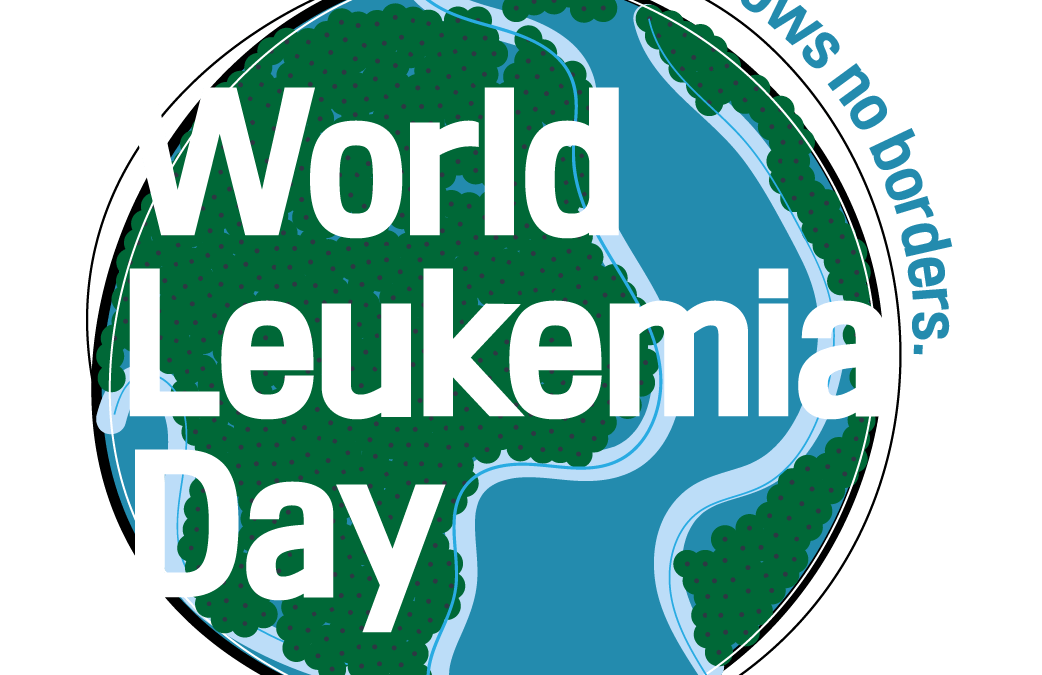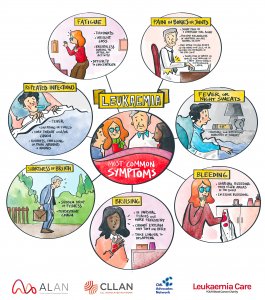Today is World Leukaemia Day, an opportune moment to raise awareness of this type of blood cancer. We’ll be asking what is Leukaemia? What are the symptoms? And, what role does cord blood play in fighting against this form of cancer?
What is Leukaemia?
Leukaemia, a complex and aggressive form of cancer, originates in the bone marrow and blood. It affects the body’s ability to produce healthy blood cells, resulting in an abnormal proliferation of white blood cells. These cancerous cells, known as leukemic cells, do not function properly and hinder the body’s ability to fight infections. Leukaemia can be broadly categorised into four main types: acute lymphoblastic Leukaemia (ALL), acute myeloid Leukaemia (AML), chronic lymphocytic Leukaemia (CLL), and chronic myeloid Leukaemia (CML).
What are the symptoms of Leukaemia?
Leukaemia symptoms can vary depending on the type and stage of the disease. Common signs include persistent fatigue, unexplained weight loss, frequent infections, easy bruising or bleeding, pale skin, joint pain, and swollen lymph nodes. In acute cases, symptoms often develop quickly and intensify, while chronic forms might exhibit milder and more gradual symptoms. Leukaemia disrupts the normal production of blood cells, leading to anaemia, lowered immunity, and clotting issues. Medical attention is crucial if these symptoms are present, as early diagnosis and treatment can greatly improve the prognosis for individuals affected by Leukaemia.
What role does Cord Blood play in fighting this form of blood cancer?
Treatment approaches for Leukaemia range from chemotherapy and radiation to stem cell transplantation.
Stem cell transplantation is a well-established treatment approach for many leukaemia patients. However, finding a suitable donor match for transplantation can be challenging. This is where cord blood comes into play.
Cord blood banking involves collecting and preserving umbilical cord blood immediately after childbirth. This blood is rich in hematopoietic stem cells, which can differentiate into various blood cell types. Unlike embryonic stem cells, cord blood stem cells are ethically uncontroversial and can be used for autologous (self) and allogeneic (related or unrelated donor) transplants.
Advantages of Cord Blood Banking
Readily Available: Cord blood can be collected without risk to the mother or the baby, as it is extracted from the umbilical cord after delivery. This painless procedure poses no harm to the newborn or the mother.
Less Stringent Matching Requirements: Due to their immaturity, cord blood stem cells exhibit a lower risk of graft-versus-host disease, a common complication of stem cell transplants. This means that an exact match between the donor and recipient is only sometimes necessary, broadening the pool of potential donors.
Rich Source of Stem Cells: Cord blood contains a higher concentration of stem cells compared to other sources, increasing the chances of successful transplantation and engraftment.
Reduced Risk of Transmission: Cord blood stem cells are less likely to carry infections or genetic disorders, reducing the risk of disease transmission compared to adult donor sources.
Future Therapeutic Potential: Research is ongoing to explore the potential of cord blood stem cells in treating various diseases beyond Leukaemia, including regenerative therapies for neurological disorders and autoimmune diseases.
Cord blood stem cells treat brother’s leukaemia
Keegan Doheney was diagnosed at two years old with leukaemia and went into remission a few years later. Mindful that he could suffer a relapse, his parents chose to bank his younger brother’s cord blood. When Keegan was five and a half, he relapsed and received the cord blood stem cells to cure his leukaemia. Watch their story.
Conclusion
Private cord blood banking can provide a safety net for those with a history of Leukaemia in their family, especially if their ethnic heritage is under-represented in the stem cell registry. Storing your baby’s cord blood ensures a greater chance of your family members having a match should the need arise. With full control of your baby’s stem cells, private cord blood banking with Cells4Life could be the right choice for your family this World Leukaemia Day.
References:
FIND OUT MORE, REQUEST YOUR WELCOME PACK TODAY
All you need to know to make an informed decision.
Provide your contact details to request:
– Complete Welcome Pack and Parent’s Guide
– Information via email
– Contact from our specialist advisors










